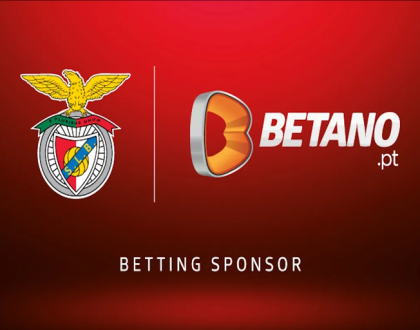The Rule of Law – iGaming and Regulation

It’s crucial to understand the rule of law in iGaming and its regulation. As the online gambling industry continues to flourish, it is imperative for both operators and players to adhere to strict regulatory frameworks to ensure transparency, fairness, and security in the sector. With increased scrutiny from government authorities and consumer protection agencies, staying compliant with regulations has never been more critical.
The Importance of Regulation in iGaming
A well-regulated iGaming industry is crucial to ensure fair play, protect players’ interests, and maintain the integrity of the games. Regulation provides a framework of rules and standards that operators must adhere to, creating a level playing field for all parties involved.
Ensuring Fairness and Integrity
The regulatory framework in iGaming ensures that games are fair and transparent, with mechanisms in place to prevent cheating or manipulation. By enforcing strict guidelines on software testing and auditing, regulators can verify the randomness of outcomes, guaranteeing players a genuine chance of winning.
Protecting Players
Regulation in iGaming is designed to safeguard the interests and well-being of players. This includes measures to prevent problem gambling, such as self-exclusion programs and limits on deposits and bets. Regulators also oversee the handling of players’ funds, ensuring that operators keep player balances separate from operational funds to protect against insolvency risks.
It is vital for players to choose licensed and regulated iGaming platforms to ensure a safe and secure gaming experience. Regulatory bodies play a vital role in monitoring operators’ compliance with these regulations, investigating any breaches, and imposing penalties when necessary to uphold the standards of the industry.
The Evolution of iGaming Legislation
Early Legislation and Regulation
Some of the earliest forms of legislation and regulation in iGaming can be traced back to the mid-1990s when Antigua and Barbuda passed the Free Trade & Processing Act, allowing for licenses to be granted to those wanting to offer online gambling services. This marked the beginning of a shift towards regulating the iGaming industry to ensure fairness, consumer protection, and prevention of criminal activities.
Current Trends and Developments
The landscape of iGaming legislation is constantly evolving as technology advances and new challenges arise. For many countries, the focus has shifted towards updating existing laws to accommodate the digital age and address issues such as cybersecurity, responsible gaming, and money laundering. One of the most significant trends is the move towards more stringent regulations and oversight to protect players and ensure the integrity of the industry.
For a more detailed look at current trends and developments in iGaming legislation, it is important to consider the role of international cooperation and standardization. With the global nature of online gambling, many countries are working together to create harmonized regulations that can be applied across borders. This helps to streamline processes, prevent regulatory arbitrage, and promote a safer and more transparent iGaming environment.
Licensing Models and Jurisdictions
Despite the growing popularity of online gaming, navigating the diverse landscape of licensing models and jurisdictions can be complex. Understanding the different licensing approaches and jurisdictions is crucial for both operators and players alike to ensure a safe and regulated gaming environment.
White List Jurisdictions
Models of white list jurisdictions offer a streamlined process for obtaining a license, as these jurisdictions have met stringent regulatory standards set by reputable gaming authorities. This simplification appeals to operators seeking a trusted regulatory environment and can offer players assurance that they are engaging with a legitimate and safe online gaming platform.
Offshore Licensing Models
Models of offshore licensing typically involve obtaining a license from a jurisdiction where regulations may be less stringent compared to white list jurisdictions. While this can provide flexibility for operators, it is critical to exercise caution when operating under offshore licenses to avoid potential regulatory pitfalls.
Any operator considering an offshore licensing model should conduct thorough due diligence on their chosen jurisdiction to understand the regulatory framework and potential risks involved. Plus, ensuring compliance with international standards and best practices is important to maintain integrity within the iGaming industry.
Player Protection and Responsible Gaming
For online gambling operators, player protection and responsible gaming lie at the heart of their operations. Ensuring a safe and enjoyable experience for players is not only a legal requirement but also an ethical responsibility.
Know Your Customer (KYC) and Anti-Money Laundering (AML)
Know Your Customer (KYC) and Anti-Money Laundering (AML) processes are critical components in safeguarding against fraud, money laundering, and underage gambling. By verifying the identity of players and monitoring their transactions, online gambling operators can prevent criminal activities and protect vulnerable individuals from harm.
Problem Gambling Prevention Measures
With the rise of online gambling, the industry has implemented various problem gambling prevention measures to help players stay in control of their gaming habits. From self-exclusion options to limit setting tools, these measures aim to promote responsible gaming and provide support to those who may be at risk of developing a gambling problem.
Your well-being is our priority. If you or someone you know is struggling with gambling-related issues, do not hesitate to seek help. Responsible gaming is a shared responsibility, and together, we can create a safer and more enjoyable gaming environment for all.
Regulatory Challenges and Enforcement
Cross-Jurisdictional Issues
To effectively regulate the iGaming industry, regulatory bodies must navigate the complex landscape of cross-jurisdictional issues. With the global nature of online gambling, companies often operate in multiple jurisdictions simultaneously, making it challenging to enforce regulations consistently. Discrepancies in laws and regulations between different countries further complicate enforcement efforts, requiring cooperation and alignment between regulatory authorities.
Compliance Monitoring and Penalties
Compliance monitoring is crucial in ensuring that iGaming operators adhere to regulatory requirements and standards. Regulatory bodies must implement robust monitoring systems to detect any violations promptly. Penalties for non-compliance play a significant role in deterring misconduct within the industry. Penalties for violations can range from fines to license revocation, depending on the severity of the breach.
Regulatory authorities must strike a balance between enforcing strict penalties to maintain integrity within the industry and providing support to operators to meet compliance obligations.
Enforcement is a key aspect of regulatory oversight in the iGaming industry. Effective enforcement ensures that operators comply with regulations, protecting consumers and promoting a fair and transparent gaming environment. Regulatory bodies must have the authority and resources to investigate and penalize non-compliant operators adequately.
Technology and Security in iGaming
After various technological advancements, iGaming has become a prominent industry worldwide. This digital evolution has led to the implementation of robust security measures to ensure fairness and transparency in online gambling. Technologies like encryption, firewalls, and secure payment gateways work together to safeguard players’ information and transactions.
Role of Random Number Generators (RNGs)
iGaming operators heavily rely on Random Number Generators (RNGs) to maintain the integrity of their games. RNGs ensure that the outcomes of games are unpredictable and fair, replicating the randomness of traditional brick-and-mortar casinos. These algorithms are regularly tested and audited by independent third parties to uphold transparency and trust among players.
Data Protection and Privacy Laws
For iGaming platforms, adherence to data protection and privacy laws is not just a choice but a regulatory requirement. The sensitivity of personal and financial information shared by players necessitates stringent measures to protect data from breaches and unauthorized access. Regulations like the General Data Protection Regulation (GDPR) in Europe set the standard for data security and privacy practices in the iGaming industry.
The comprehensive nature of these laws obligates iGaming operators to implement strict data protection protocols, including encryption, access controls, and regular security assessments. Non-compliance with these laws can result in severe penalties and reputational damage, underscoring the critical importance of data protection in the iGaming sector.
The Future of iGaming Regulation
Potential Changes in Global Regulations
Future changes in global iGaming regulations may see a shift towards more stringent measures aimed at ensuring player protection and responsible gaming. Regulators worldwide are increasingly focusing on the need for robust compliance frameworks to prevent issues like money laundering and underage gambling. The trend is towards greater transparency, stricter licensing requirements, and enhanced reporting mechanisms to foster a safer gaming environment for all participants.
Emerging Technologies and Their Impact
One of the most significant developments in the iGaming industry is the advent of artificial intelligence and blockchain technology. These technologies have the potential to revolutionize the way online casinos operate, improving security, transparency, and efficiency. AI can be used to detect patterns of problematic behavior in players, while blockchain can provide an incorruptible record of transactions. The combination of these technologies offers unprecedented levels of trust and accountability in the iGaming sector.
Emerging technologies are not without their challenges, however. As AI becomes more sophisticated, concerns regarding data privacy and the potential for algorithmic biases may arise. Regulators will need to stay ahead of these developments to ensure that the integration of new technologies does not compromise player protection or the integrity of the games offered.
Final Words
To wrap up, the Rule of Law is a fundamental principle in the iGaming industry that ensures fairness, transparency, and accountability in regulatory practices. By upholding the Rule of Law, regulators can effectively enforce regulations, protect consumers, and maintain the integrity of the iGaming sector. It is crucial for stakeholders in the iGaming industry to adhere to the Rule of Law to promote a sustainable and trustworthy regulatory environment.
Overall, the Rule of Law is important for creating a level playing field for all participants in the iGaming sector. By following established laws and regulations, operators, regulators, and players can contribute to a thriving industry that prioritizes responsible gaming practices and upholds high standards of integrity. Embracing the Rule of Law in iGaming regulation is key to fostering a safe and secure environment for all stakeholders involved.
FAQs:
What is the significance of regulation in iGaming?
Regulation in iGaming ensures fair play, protects players’ interests, and maintains game integrity by enforcing standards and rules.
How do regulatory bodies protect players in iGaming?
Regulatory bodies safeguard players by implementing measures to prevent problem gambling, ensure fair gaming outcomes, and oversee fund handling by operators.
What are the challenges faced by regulators in iGaming enforcement?
Regulators encounter cross-jurisdictional issues and must monitor compliance effectively while balancing enforcement with support for operators.
What role do emerging technologies play in the future of iGaming regulation?
Emerging technologies like AI and blockchain offer potential benefits in enhancing security and transparency, but regulators must address concerns regarding privacy and bias.
Why is the Rule of Law essential in iGaming regulation?
The Rule of Law ensures fairness, transparency, and accountability in regulatory practices, contributing to a sustainable and trustworthy iGaming environment.
Recommended Posts

Kosmonaut Casino: A Comprehensive Review
May 17, 2024

Betano Extends Sponsorship with SL Benfica
May 17, 2024

Slotegrator’s 2024 Journey in iGaming
May 17, 2024




